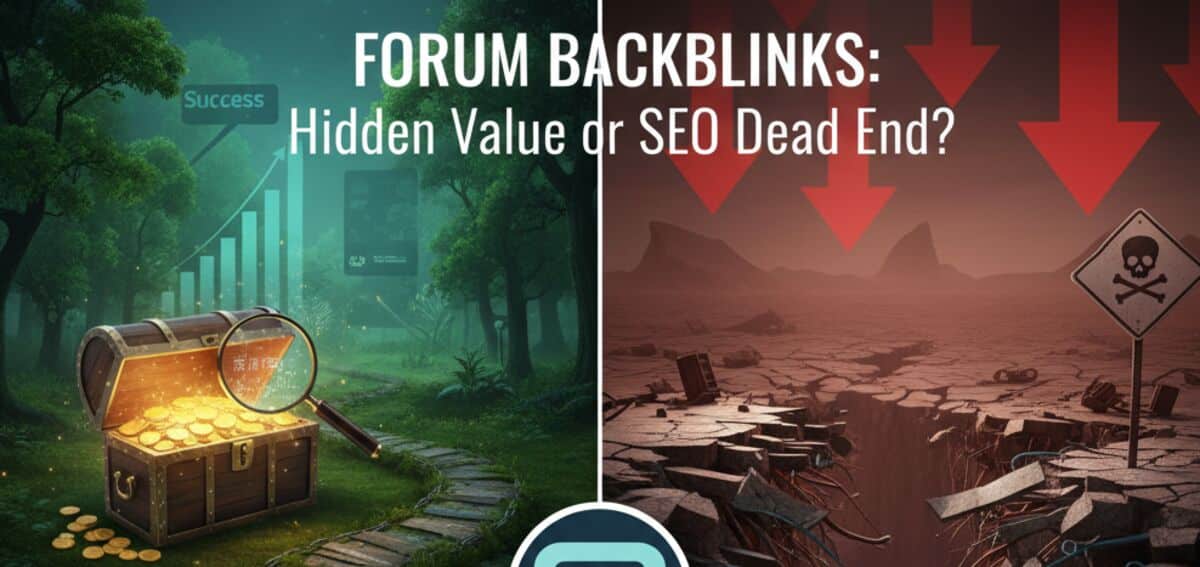Forum backlinks are the lure of link building. Easy to start, almost no barrier: make a profile, drop a link in a signature or a reply, and you’ve done the job. That simplicity is seductive, especially when editorial placements take months of outreach and careful content. But ease isn’t the same as value. So what do forum links actually buy you?
The illusion of SEO juice
Short answer: very little. From a rankings perspective, most forum backlinks deliver almost zero direct SEO value. Google has been clear about user-generated spam and the danger of stuffing forum threads with keyword-optimized links. Plus, the technical reality kills their potency: big forums and Q&A sites typically add rel=”nofollow” or rel=”ugc” to user links. Those attributes are treated as hints by Google, not as full endorsement, so they generally don’t pass the kind of “link juice” people chase.
If your plan is to bulk-build forum links to pump up Domain Authority or Domain Rating, you’re mostly wasting time — and flirting with risk. Google’s Link Spam updates are built to sniff out patterns of low-quality link acquisition and devalue them, sometimes worse. So yes, if you’re spamming keyword-rich anchors across a thousand threads, it’s both ineffective and potentially harmful.
Where forum links can actually matter
That said, it’s not that forum links are worthless in every sense. They can be quietly powerful when used as part of a human-driven, reputation-first approach.
Think of forums as places where real people ask real questions. A thoughtful, well-placed reply can drive highly targeted traffic. Not theoretical traffic — qualified visitors who care about the topic and who might convert, subscribe, or share your work. That’s the point: these links don’t hand you rankings, they hand you eyeballs and credibility.
Example: answer a niche coding question on Stack Overflow with a clear, expert solution and link to a detailed tutorial on your blog. The link isn’t valuable because of its HTML attributes. It’s valuable because it sends developers who need that solution straight to your content. Same on specialized subreddits or Quora threads: a well-timed, helpful answer can get upvoted, go viral inside that community, and bring sustained referral traffic. And, crucially, it can lead to organic, editorial links later — other writers and sites discover your resource and link to it naturally. That secondary effect is where sustainable SEO value often begins.
A practical playbook
Flip the old mindset. Stop chasing the link itself; chase the exposure and the relationship.
- Be niche-relevant: pick forums that match your industry or audience.
- Contribute first, link second: build trust by answering questions without links; only add them when they truly help.
- Use natural anchors: “this guide,” “on our blog,” or your brand name work better than exact-match keywords.
If you treat forums like broadcast channels for spammy links, they’ll be worthless and risky. If you treat them like communities where you can show expertise, they become efficient engines for traffic and trust.
Forum backlinks aren’t a silver bullet, nor are they poison by default. They’re a tool — blunt and noisy if misused, quietly effective when wielded with care. In short: easy to get, rarely worth it for rankings alone, but absolutely worth trying when your aim is to build authority, drive targeted traffic, and earn real, organic attention.
What’s your experience? Leave a comment below — tell us whether forum engagement has ever driven meaningful traffic for you, and follow us on Facebook, X (Twitter), or LinkedIn to keep the conversation going.
AI Search manipulation is real—here’s how it works (and why best practices still win).
Sources
- www.support.google.com/webmasters/thread/257531107/seo-value-of-forum-comments-backlinks?hl=en
- www.developers.google.com/search/docs/essentials/spam-policies
- www.linkbuilder.io/forum-backlinks/



Stop Eggnogging Around: 4 Holiday Outreach Templates That Land Links
The Gift Guide Gold Rush: Your Backlink Strategy for High-DA Sites